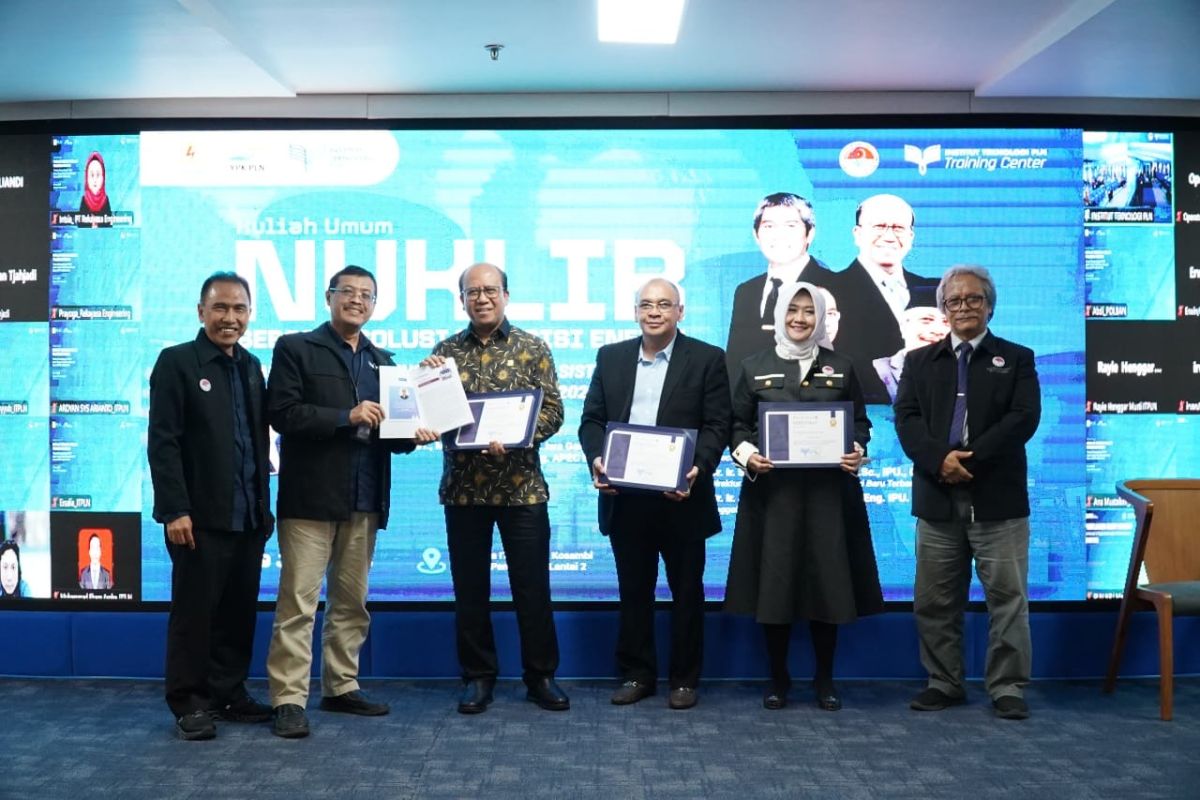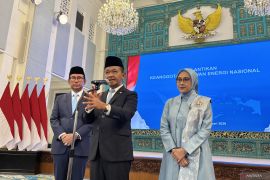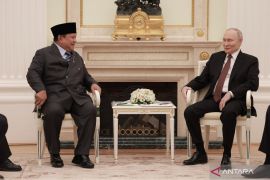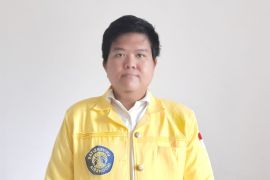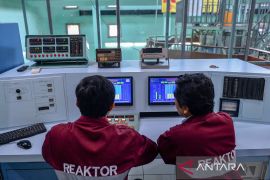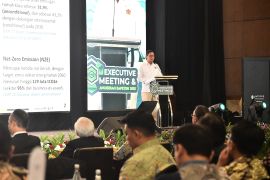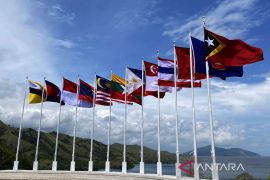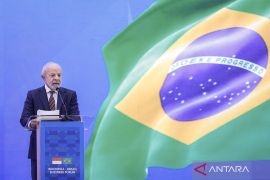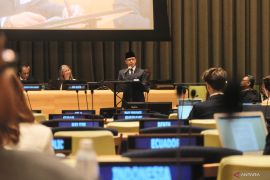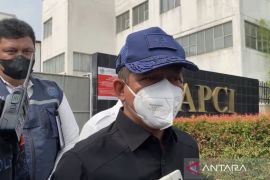According to the Electricity Supply Business Plan (RUPTL) for 2025–2034, the Ministry of Energy and Mineral Resources aims to increase electricity capacity by 69.5 gigawatts (GW) through new power plants.
Of the new power plants being added, 61 percent—representing 42.6 GW of capacity—will use renewable energy, while 15 percent, with a capacity of 10.3 GW, will focus on energy storage.
To achieve the energy mix target, the ministry sees the need to accelerate the construction of nuclear power plants to 2029, moving up from the initial target of 2032.
Energy and Mineral Resources Minister Bahlil Lahadalia has announced the government’s plan to build nuclear power plants, with potential sites identified in Sumatra and Kalimantan.
The government is planning to develop 250 megawatts (MW) of nuclear power plant capacity in Sumatra and another 250 MW in Kalimantan.
According to the Electricity Supply Business Plan (RUPTL) of state-owned electricity company PT PLN for the 2025-2034 period, West Kalimantan holds significant energy resources, including over 24 thousand tons of uranium—the key fuel for nuclear reactors.
Utilizing this resource for nuclear power plant development depends in part on the government policy and the results of a feasibility study.
Potential partners
Given that nuclear power will be a major breakthrough in Indonesia's energy mix, the country needs to partner with nations that are more experienced in operating nuclear power plants to meet their national energy needs.
Deputy Chair of the Indonesian Chamber of Commerce and Industry (Kadin) Aryo Djojohadikusumo suggested that the government consider collaborating with Canada and South Korea on the development of nuclear power plants.
He noted that both countries possess significant uranium reserves, on par with those of the United States (US), China, and Russia.
The Kadin leader emphasized that nuclear energy is viewed as efficient, affordable, and environmentally friendly. It could also be a strategic means to strengthen national energy security while reducing reliance on fossil fuels.
While acknowledging the promising benefits of nuclear power, he also reminded the government of the importance of broad public information campaigns to address concerns about possible risks.
The Ministry of Energy and Mineral Resources is also considering using technology from China and Russia to develop nuclear power plants.
Currently, Indonesia is seeking references from countries using small modular reactor (SMR) technology, according to Deputy Minister of Energy and Mineral Resources Yuliot Tanjung.
SMR technology is being considered a suitable option for Indonesia due to its flexibility, safety, and cost-effectiveness compared to conventional nuclear power plants.
Pertamina NRE, a subsidiary of Indonesia’s state-owned energy company Pertamina, has expressed interest in participating in the development of nuclear power plants in the country.
While the government prepares regulations for nuclear power development, Pertamina NRE is conducting studies on technology, location, and energy sources.
Thus, the company is exploring cooperation to study nuclear energy development in countries such as Russia, China, Canada, and the US, which are among the top nuclear-generating countries, based on data from the Nuclear Energy Institute in 2023.
Among these countries, Russia, China, and the US are considered leading in terms of the number of SMR nuclear power plant designs and active projects, which Indonesia is keen to pursue.
Regulations
However, Indonesia seems to still have a long way to go before it can realize the construction of nuclear power plants.
Before developing nuclear power plants, the government must establish the Nuclear Energy Program Implementation Organization (NEPIO).
The organization will play a key role in overseeing the development of nuclear power plants, according to the Ministry of Energy and Mineral Resources.
Currently, the draft of a presidential decree on the establishment of NEPIO is under discussion at the ministry, with the goal of forming the organization soon.
Indonesia's National Development Planning Ministry (Bappenas) will help establish a working group tasked with revising institutional issues for the development of nuclear power plants.
Deputy Minister of National Development Planning Febrian Alphyanto Ruddyard stated that Indonesia has yet to fulfill three requirements for the development of nuclear power plants: defining its national position, ensuring organizational readiness, and mapping stakeholders.
As an initial step, Bappenas will help form a working group tasked with revising institutional issues, including drafting a letter of recommendation to the President of Indonesia.
The next strategic step recommended is to form a strong and independent nuclear power plant acceleration team, reform nuclear energy regulations and policies, as well as establish a nuclear energy implementing agency, he elaborated.
The Research Organization for Nuclear Energy (ORTN) of the National Research and Innovation Agency (BRIN) and the International Atomic Energy Agency (IAEA) have also taken steps to ensure that nuclear energy development is carried out professionally and responsibly.
The idea of developing nuclear power plants in Indonesia has been discussed for around 20 years, but there has been no implementation to date.
Therefore, not only commitment but also concrete action from the government—in collaboration with businesses—is the key to realizing this very promising project for Indonesia's future energy security.
Related news: RI, IAEA help strengthen global nuclear energy infrastructure
Related news: Significant progress in RI's nuclear research in past decade: IAEA
Related news: BRIN outlines development plans for nuclear power plant in Indonesia
Related news: Indonesia planning to build nuclear power plants in 2030s: BRIN
Related news: BRIN invites private sector to develop nuclear power plants
Editor: Martha Herlinawati Simanjuntak
Copyright © ANTARA 2025
